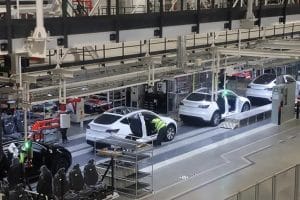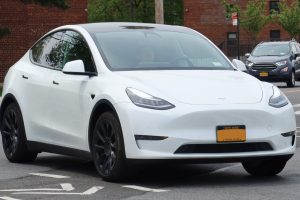Tesla may be taking a rather deliberate strategy with its vehicle production ramp in Germany. As per local reports, Tesla is currently looking to produce about 1,000 electric vehicles per week at Giga Berlin by the end of the month, with the company ramping to about 5,000 to 10,000 per week by the end of 2022.
Giga Berlin only started vehicle deliveries during an event attended by CEO Elon Musk last month. Tesla handed over its first batch of Model Ys during the ceremony, but reports among avid watchers of the facility have hinted that Giga Berlin is still ramping its vehicle production slowly.
Citing internal calculations by the company, German media outlet Automobilwoche estimated that Tesla will only be making about 30,000 cars at Giga Berlin this year, with higher outputs being achieved in 2023. This is surprisingly conservative, especially considering Tesla’s pace in Gigafactory Shanghai. That being said, the German media outlet also noted that Tesla plans to ramp its weekly output to 1,000 vehicles per week by the end of the month.
This would be quite an improvement considering that Tesla is reportedly only producing about 350 vehicles per week at Gigafactory Berlin for now. By the end of the year, Tesla will reportedly be looking to improve its output to about 5,000-10,000 vehicles per week. Production would be paused for about three weeks in Fall 2022, however, as Tesla would reportedly be transitioning the Made-in-Germany Model Y from one battery cell format to another.
Considering that Tesla is currently using 2170 cells for the Model Y that are produced in Giga Berlin and the Fremont Factory, it seems safe to assume that the Fall 2022 shutdown in the facility would allow the company to transition its European-made all-electric crossovers with 4680 cells. So far, only Tesla’s Made-in-Texas Model Ys are believed to be equipped with the company’s new battery form factor.
Tesla is currently building a dedicated battery cell production facility in the Gigafactory Berlin complex. Progress in the factory’s construction has been relatively fast, and expectations are high that the battery plant will be operational in the near future. Estimates that Tesla could transition its Made-in-Germany Model Y to 4680 cells could then be proven accurate.





